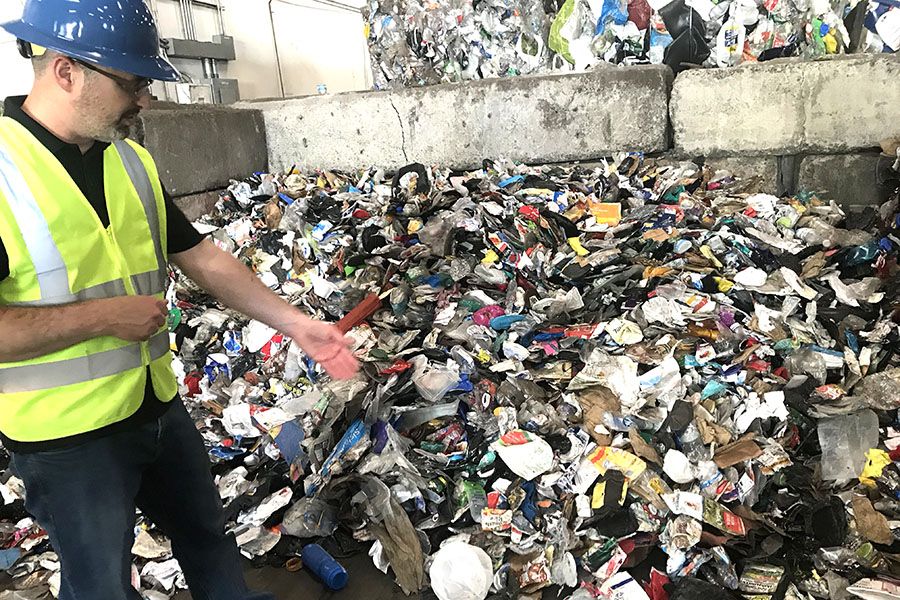by Kim Moore | Oregon Business | September 6, 2019

A Portland plastics recycling project aims to solve the growing trash problem.
When China banned imports of recyclable plastics from the U.S. in January 2018, America’s lack of infrastructure to deal with its own trash was laid bare. Local governments scaled back on what consumers could put in their recycling bins. More trash has made its way to landfills.
For a long time, the U.S. neglected to invest in effective plastic recycling facilities because it was able to ship its waste to developing countries. That strategy is no longer viable. “The inadequacies and inefficiencies in our system were not visible because China took [the waste],” says Kim Holmes, vice president of sustainability at the Plastics Industry Association.
This lack of investment is slowly changing. In Portland, Metro has partnered with several private funders to work on a solution. It has launched a project aimed at improving plastics recycling locally.
The 60-day demonstration project in Southeast Portland sorts plastics that would normally go to the landfill. These plastics can then be sold to companies that recycle plastics into valuable products, such as synthetic oils and chemicals.
The project uses waste-sorting technology patented by recycling company Titus MRF Services. Waste plastic comes to the facility from four regional material recovery facilities (MRFs). Machines use technology that can distinguish and sort the different resins in the plastic trash, including PET, commonly found in plastic bottles; polystyrene; high-density polyethylene, often used in milk jugs; and plastic food cartons.
Since the U.S. has been unable to send recycling processes over seas, there has not been much of a market for it. Due to this, a lot of products that could have been recycled have been sent to landfills. I think finding ways to better the recycling processes is something very important and could really benefit us, pushing us towards a more circular economy while also saving us money and materials. Being able to properly sort through recycling, making sure there are no contaminants, is a very important step being taken to start this change off.



